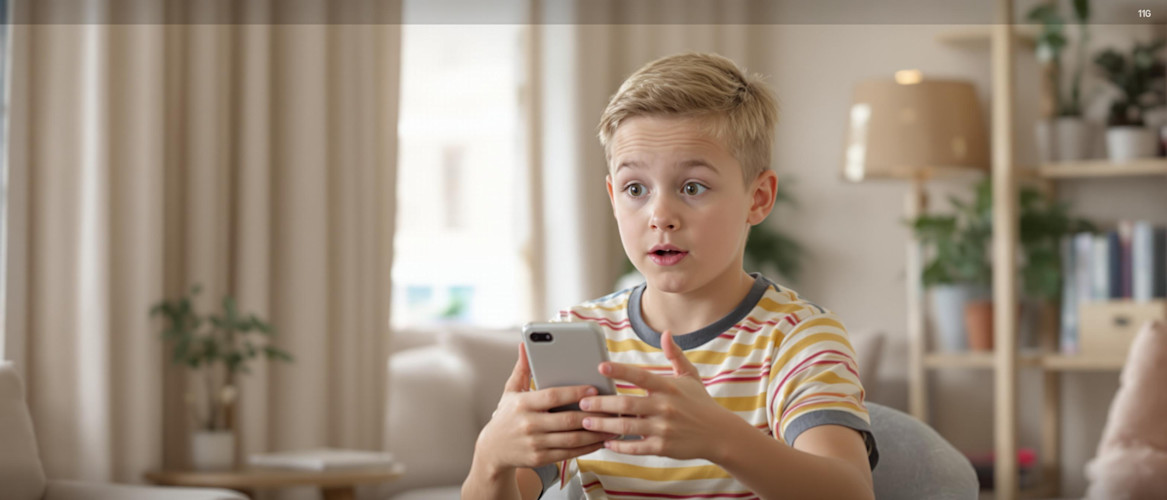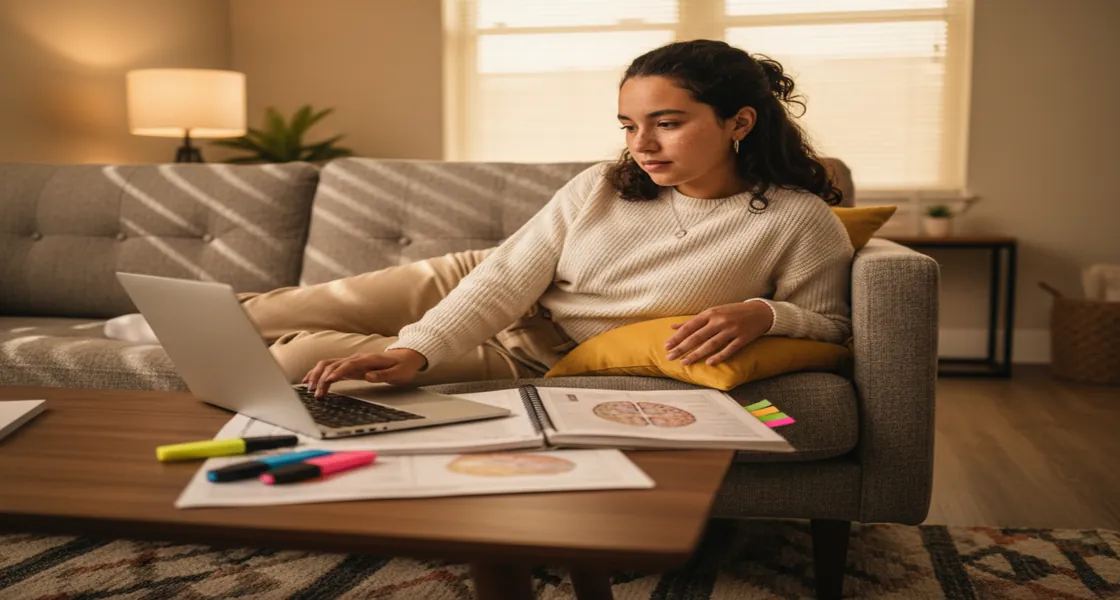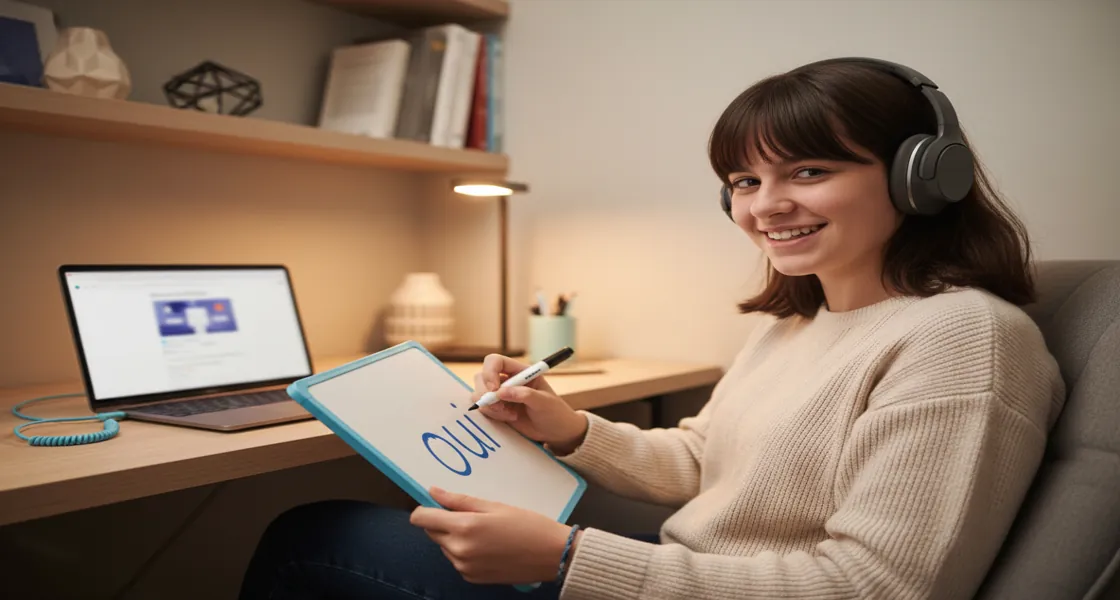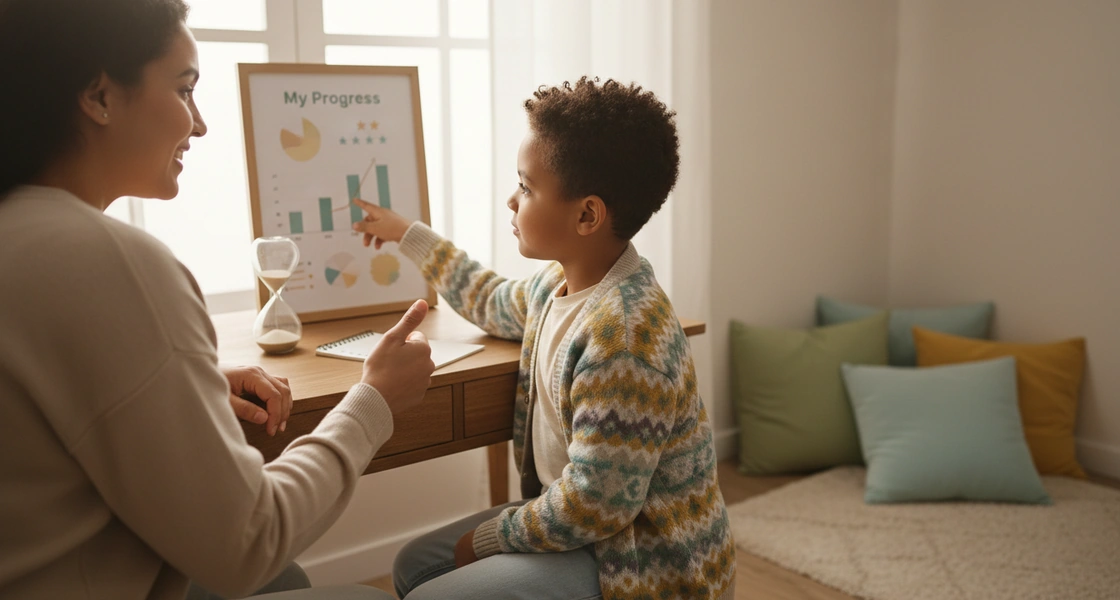Confident communication helps kids thrive in classrooms, on teams, and in everyday interactions. When kids practice interview skills, they learn to share their ideas clearly and connect with others. Whether introducing themselves in a new group or answering questions in a leadership interview, every moment helps them feel more capable.
These everyday skills start with simple practice. With interest-led classes and playful activities, Outschool supports learners in growing their voice and confidence. When paired with your guidance at home, those skills become tools kids can count on.
Why interview skills matter for kids
When your child enters a new social setting, greets a teammate before practice, or joins a new club, these little moments are chances to build essential communication skills, like introducing themselves, asking thoughtful questions, and showing active listening. Practicing these skills helps kids feel more confident in everyday situations.
Strong communication makes a difference if kids apply for a summer camp, lead a group project at their co-op, or prepare for a future job interview. Parents who guide their children through simple interview activities at home are helping them grow into thoughtful, confident individuals, ready to shine in big and small moments.
How parents can teach interview skills at home
Most importantly, the best way to teach communication skills is by modeling them yourself. In addition, teaching interview skills at home can be easy, playful, and rewarding. The key is to keep things light and engaging, because when kids feel safe and supported, they shine.
- Set up mock interviews based on real-life situations your child might encounter, like joining a new team, chatting with a coach chatting with a teacher, or meeting a new friend.
- Choose a comfortable and familiar setting, such as the kitchen table or a cozy reading nook, to help ease nerves.
- Use warm, open body language and demonstrate active listening so they can mirror those behaviors.
- Praise specific efforts, like thoughtful answers, clear speaking, or confident posture.
- Let your child switch roles and be the interviewer. This simple role reversal builds empathy and helps them understand both sides of a conversation.
With regular, lighthearted practice, your child will grow more confident expressing themselves in interviews and everyday situations.
Building confidence in kids
If the idea of an interview makes your child nervous, help them turn that feeling into excitement. Share a quick story about a time you were nervous before joining a group but ended up having fun. These small moments help your child see that nervousness is normal and something they can work through.
- Power poses: Try a superhero stance together. It’s silly and fun, but it works.
- Mindset moments: Ask them to picture a happy scene where they speak clearly and smile.
- Affirmations: Try phrases that feel like them, “I ask great questions!” or “I’m ready to share my story!”
- Play breaks: Make room for laughter, silly voices, dance moves, and keep things stress-free.
Fun activities to teach kids interview skills
Interview prep doesn’t have to feel daunting; it can be full of imagination, connection, and creativity. The more fun your child has, the more naturally their confidence grows. These activities are great for building real-world communication skills while keeping kids engaged.
- "Family Talk Show": Turn your living room into a talk show. Your child can play host, asking family members about their day or favorite hobbies. Let them use props and keep it short and upbeat.
- "Career Adventure Games": Take turns pretending to interview for dream jobs, may it be a dragon tamer or an astronaut. Let your child’s imagination lead the way.
- "Junior Journalist Projects": Encourage your child to interview friends or family about books, hobbies, or family traditions. Then, have them write or draw what they learned.
- "Confidence Circles": Gather a few friends or siblings and take turns introducing yourselves and telling short stories. Keep it casual and cheer each other on!
- "Star Reporter Segments": Record short video clips of your child sharing highlights from their week or asking questions to a “guest.” Rewatch together and celebrate what they did well.
Interview questions kids should prepare for
Try chatting through these questions, relaxed, like during a walk or while doing a puzzle. That way, your child learns to answer confidently, without memorizing.
Intro questions:
- “Tell me about yourself” – Let your learner talk about what lights them up, including favorite activities, what they’re proud of, or what they’re curious about.
- “What do you like to do?” – Help them practice sharing something specific, like “I love making stop-motion videos because I get to mix art and storytelling.”
Experience questions:
- “Why do you want to join?” – Let them connect the opportunity to what excites them.
- “Tell me about a time you solved a problem” – Even small wins count! Maybe they helped a classmate or found a new way to clean their room.
Curiosity questions:
- “Do you have any questions?” – Help them prepare the confidence and critical thinking skills needed to ask questions.
Pro tip: Show your learner that no question is silly by consistently giving thoughtful answers, big or small. This approach builds lifelong confidence to ask about anything they don’t understand!
FIRST MONTH FREE!
Get support that meets kids where they are.
Learn moreFrequently asked questions (FAQs) about teaching kids interview skills
Interview skills help kids find their voice, build relationships, and confidently step into new opportunities. Here are answers to common parent questions:
When is a good time to start building interview skills?
Young learners (ages 5–6) can start with playful conversation games or show-and-tell. These casual, everyday moments help build comfort with speaking and listening. As they grow, you can gently introduce more structured role-play based on their interests. Interview skills grow best in a nurturing environment, where your child feels heard and encouraged.
How can I help my shy learner feel excited about interviews?
Lean into what lights them up. Start with familiar topics, like their favorite animal, video game, or bedtime story, and keep the practice short and playful. A cozy, low-pressure setting (like a couch fort or backyard blanket) can go a long way in helping them feel at ease. Recognize every tiny moment of bravery. Did they raise their hand in a group? Ask the librarian a question? That’s confidence in action, and it deserves a cheer.
What if my child finds eye contact challenging?
If eye contact feels uncomfortable, help them find an alternative that still feels engaged, like looking at your forehead or a nearby object. Let your child know that how they connect can look different, and that’s completely okay.
What makes interview practice fun and effective?
Make it part of everyday life. Play “talk show” in the car, do a 10-minute “interview challenge” at breakfast, or have them ask your pet three silly questions. The goal is to create a rhythm that feels more like play than performance. Younger kids might love dressing up and interviewing stuffed animals. Older kids could record “vlogs” or practice with friends. Laughter, flexibility, and snacks always help.
How can I support my neurodiverse learner with interview skills?
Follow your child’s lead. Some learners feel most confident when they can write out their answers or use visual prompts. Others may benefit from practicing in quiet, predictable settings before trying something new. Most importantly, celebrate your child’s communication style, and let them know their voice is valued just as it is.
Build real-world confidence with Outschool
Interview skills aren’t just for job interviews; they’re about helping kids feel proud to speak up and share who they are. As a homeschooling parent, you get to see these wins up close: when your child introduces themselves, asks a great question, or takes the lead in a group activity.
Outschool gives your learner more chances to practice with teachers who cheer them on and peers who grow alongside them. Whether it’s one-on-one tutoring or live classes, your child can build the confidence to communicate with clarity and heart.






.svg)
.svg)







